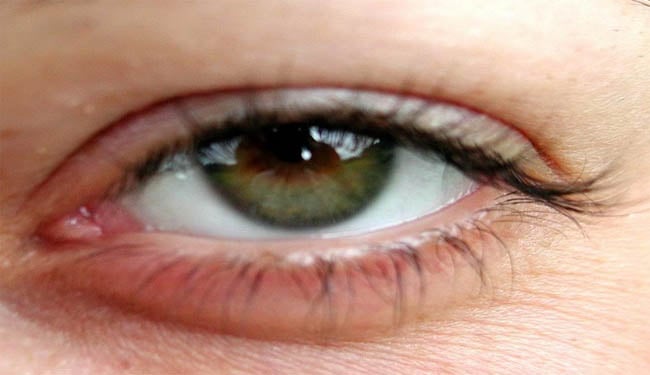Foundation Fighting Blindness and Mass. Eye and Ear Host June 1 Optogenetics Workshop to Fast-Track Innovative Approaches to Save and Restore Sight Lost to Blinding Diseases
The Foundation Fighting Blindness and Massachusetts Eye and Ear will host the Optogenetic Therapies for Vision workshop on Friday, June 1, from 8 a.m.-6 p.m., in Boston. The day-long forum will unite researchers, retinal specialists, companies interested in gene therapy, regulators, and the National Institutes of Health’s (NIH) National Eye Institute (NEI), to examine the clinical path of optogenetic approaches in treating vision-robbing diseases such as macular degeneration, retinitis pigmentosa, and related conditions that affect more than 10 million Americans. Co-chairing the workshop are Mass. Eye and Ear’s Richard H. Masland, Ph.D., and the University of California, Berkeley’s John Flannery, Ph.D., with top scientific minds from MIT, the University of Pennsylvania and several other renowned institutions in attendance to collaborate on further applying the latest developments in optogenetics to vision research.
A relatively new field of research, optogenetics is a process that uses gene therapy to empower cells, including those in the retina and the brain, to respond to light. Its potential is especially exciting because this method stands to benefit people with even very advanced sight loss. One optogenetic approach has already restored some vision in mice by enabling ganglion cells in highly degenerated retinas to convert light into electrical signals and send them to the brain to be interpreted as vision.
“We hope to map out how progress in optogenetic research will translate into clinical trials for patients losing vision and determine how the Foundation can invest resources to accelerate the process,” said Foundation Fighting Blindness Chief Research Officer Stephen Rose, Ph.D. “Bringing together the necessary research and biotech players to advance lab studies into human trials is a major role the Foundation plays to move the needle beyond simply funding promising research.”

“Now is our opportunity to accelerate progress in this promising field. The basic preclinical animal work is now done. Using optogenetics we can restore at least a limited type of vision in mice that are blind from the same types of retinal degeneration that afflict human patients. This conference gathers representatives of the best research groups in the world. Our task will be to tackle the next steps – those that move us down the road to evaluating this therapy in humans,” said Dr. Masland, who is David Glendenning Cogan Professor of Ophthalmology at Harvard Medical School and Associate Chief and Director of the Howe Laboratory of Ophthalmology at Mass. Eye and Ear.
Based on workshop outcomes, the Foundation plans to issue a request for applications for optogenetics projects to fund with $1.5 million or more allocated for this type of research. In February, the Foundation announced a $250,000 grant to Ann Arbor, Mich.-based RetroSense Therapeutics for developing an optogenetic treatment that delivers the genes of green algae to the retina for restoring vision. Foundation-funded researchers in France and Switzerland are also working to develop an optogenetic method to resurrect cone cells that have stopped working, with the goal of launching a clinical trial of the treatment within three years.
About this neuroscience research article
About the Foundation Fighting Blindness
The Foundation Fighting Blindness is a national non-profit organization driving research that will lead to preventions, treatments and cures for retinitis pigmentosa, macular degeneration, Usher syndrome and the entire spectrum of retinal degenerative diseases that affect more than 10 million Americans. Since 1971, the Foundation has raised over $450 million as the leading non-governmental funder of retinal research. Breakthrough Foundation-funded studies using gene therapy have restored significant vision in children and young adults who were previously blind, paving the way for using this method to treat a wide variety of retinal degenerative diseases, and proving a cure is in sight. With a network of 50 chapters, the Foundation also provides support, education and resources to affected individuals and their families in communities across the country.
About Massachusetts Eye and Ear
Mass. Eye and Ear clinicians and scientists are driven by a mission to find cures for blindness, deafness and diseases of the head and neck. After uniting with Schepens Eye Research Institute in 2011, Mass. Eye and Ear in Boston became the world’s largest vision and hearing research center, offering hope and healing to patients everywhere through enhanced collaboration, discovery and innovation. Mass. Eye and Ear is a Harvard Medical School teaching hospital and trains future medical leaders in ophthalmology and otolaryngology, through residency as well as clinical and research fellowships. Internationally acclaimed since its founding in 1824, Mass. Eye and Ear employs full-time, board-certified physicians who offer high-quality and affordable specialty care that ranges from the routine to the very complex. U.S. News & World Report’s “Best Hospitals Survey” has consistently ranked the Mass. Eye and Ear Departments of Otolaryngology and Ophthalmology as top five in the nation. For more information about life-changing care and research, or to learn how you can help, please visit MassEyeAndEar.org.
Members of the media interested in gaining webinar access to the workshop or coordinating an interview with Dr. Rose about the potential of optogenetics should contact Allie Gebhardt at 410-423-0643. A full workshop agenda is available.
Contact: Allie Gebhardt – Foundation Fighting Blindness
Press release submitted to Neuroscience News by – Allie Gebhardt
Additional source: Massachusetts Eye and Ear
Image Source: Neuroscience optogenetics image adapted from Public Domain Images. Licensed under public domain.








